Dental Implant in Romania
Search and Compare the Best Clinics and Doctors at the Lowest Prices for Dental Implant in Romania
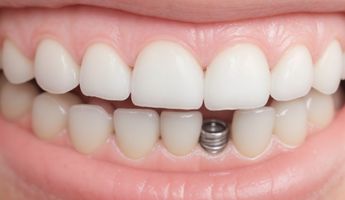
Find the best clinics for Dental Implant in Romania
No pricing info available
Vietnam offers the best prices Worldwide
Price: $ 1
From 23 verified reviews
Panciuc Sabina, 30 August 2020
Awesome team, great atmosphere. The procedures were painless and the doctors really attentive. I strongly recommend it!
From 3 verified reviews
Marcello Vivoli, 13 December 2019
Good evening,I am Marcello from Florence, I was a patient of this dental practice in July 2019 (for a bridge of 5 teeth), I want to express my satisfaction with the excellent work carried out.After 3 months, everything goes well.This dental practice is recommended for the professionalism, kindness and patience shown to me.Very affordable costs especially if compared to Italian costs.
From 15 verified reviews
Alina Murineanu, 19 April 2020
I went to Dr. Răzvan Paraschiv for an endodontic retreatment. Everything was alright. He is a true professional and very hard to find a place to program. It was worth the wait.
From 16 verified reviews
Alexandru Radoi, 17 September 2020
Personalul e profesionist si foarte sociabil. Tocmai am fost la o consultare si ii recomand cu incredere!
From 5 verified reviews
Tsedef Hadar, 22 August 2019
Professional and confident!All correspondence by email, precise and comfortable all treatments with Dr Laura. X rays close by. I definitely recommend.
Clinica Dr. Rosu, located in Central Timisoara, Timisoara, Romania offers patients Dental Implant procedures among its total of 54 available procedures, across 1 different specialties. Currently, there's no pricing information for Dental Implant procedures at Clinica Dr. Rosu, as all prices are available on request only, whilst the national average price is approximately $708. There are many specialists available at the Clinic, with 4 in total, and they are not accredited by any recognized accreditations institutes
RoMedicaltravel, located in Calea Grivitei, Bucharest, Romania offers patients Dental Implant procedures among its total of 36 available procedures, across 2 different specialties. Currently, there's no pricing information for Dental Implant procedures at RoMedicaltravel, as all prices are available on request only, whilst the national average price is approximately $708. There is currently a lack of information available on the specialists practicing at the Hospital, and they are not accredited by any recognized accreditations institutes
Centro Italiano Di Implantologia, located in Calea Grivitei, Bucharest, Romania offers patients Dental Implant procedures among its total of 37 available procedures, across 2 different specialties. Currently, there's no pricing information for Dental Implant procedures at Centro Italiano Di Implantologia, as all prices are available on request only, whilst the national average price is approximately $708. There are many specialists available at the Hospital, with 6 in total, and they have multiple recognized accreditations, including: ISO Certification - International Organization for StandardizationBIOMET 3i Education ProgramMinisterul SanatatiiUNAS - Uniunea Nationala a Asociatiilor StomatologiceAMSPPR - Asociatia Medicilor Stomatologi cu Practica Privata din Romania
- Home
- Romania
Compare Before & After Photos of _procedure_photos.phpDental Implant

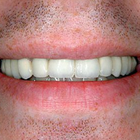
Front view


Front view
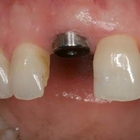
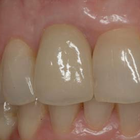
Front view
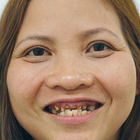

Front view


Front view
WHY US?
At Medijump, we're making medical easy. You can search, compare, discuss, and book your medical all in one place. We open the door to the best medical providers worldwide, saving you time and energy along the way, and it's all for FREE, no hidden fees, and no price markups guaranteed. So what are you waiting for?

Free

Best Price

Widest Selection

Risk-Free
What you need to know about Dental Implant in Romania

A dental implant is a medical device that provide support to artificial teeth. It's surgically placed into the jaw to act as a replacement for the root of a missing or damaged tooth, which in turn serves to hold a replacement tooth or bridge. It functions and looks much like a real tooth, restoring your ability to chew and improves your overall appearance. Dental implant surgery is considered as a better alternative to dentures or bridgework that does not fit well. It also offers a great option for people when they do not have enough natural teeth roots left to build denture or bridgework replacements.
Since dental implants eventually fuse with your jawbone over the span of several months, it won’t make noise, slip, or cause bone damage the way dentures or bridgework might. Dental implants also enable natural speech, look and feel like your own teeth, make eating easier, and improves your appearance. However, the surgery may involve several stages, and, in some cases, it may require two separate visits to the clinic to complete. Ensure to look for a specialist in a reputable clinic for the best results.
What is the cost of Dental Implant in Romania?
Price differences abound in Romania for Dental Implant based on the clinic, the proficiency of the surgeon, and the individual requirements of the patients. It's essential to realize that dental insurance usually doesn't cover the entire bill for this treatment, though it might cover a part. Several dental clinics provide finance schemes or payment alternatives to assist in easing the financial burden. For more precise cost estimates, reach out to your dental service provider or a nearby clinic.
What does a Dental Implant Procedure Involve?
Dental implant surgery generally requires several stages. Each stage may be performed under general or local anesthetic. The first stage is removing the damaged tooth. Then, if your jawbone is too soft or not thick enough, your dentist may perform bone grafting to create a more solid base for the implant. The bone graft may be natural (taken from another part of your body) or synthetic (a bone-substitute material). If you only need minor bone grafting, the implant surgery can be performed on the same day. However, if you need a significant amount of bone graft, the implant surgery may have to be postponed until the transplanted bone grows enough new bone to support the dental implant.
The next stage after the damaged tooth removal and bone graft (if you need one) is placing the dental implant. To do this, your dentist makes an incision to expose the bone and puts the metal implant post deep into the bone. At this stage, you will still have a gap where your tooth is missing. Your dentist will place a temporary denture for appearance. Once the metal implant post is placed, osseointegration begins. This is a process where the jawbone grows into the surface of the implant and can take several months to complete. After osseointegration is complete, your dentist will place the abutment, which is a small connector post that will hold your new tooth. The final stage, after the abutment is placed, is placing the crown, which is the tooth-looking part. You can choose between a removable crown and a fixed crown.
How Long Should I Stay in Romania for a Dental Implant Procedure?
The length of your stay in Romania for a Dental Implant depends on numerous considerations like the intricacies of the procedure, the quantity of implants required, and your personal recovery process. Each stage of dental implant surgery is done in separate appointments. After each appointment, you should be able to leave the hospital or clinic right away. However, you should stay in Romania for at least 2 weeks for completion of the work, the initial recovery time, and follow-up checkups.
What's the Recovery Time for Dental Implant Procedures?
The recuperation duration following a Dental Implant or dental implant operation can widely vary and is shaped by multiple aspects. Initial healing of the tissue might require only a handful of days, but complete osseointegration (the fusion of the implant with the jawbone) generally spans several months. This window could be extended for patients requiring auxiliary procedures such as bone grafts, or those with prevailing health issues that may impede the healing process.
Post-procedure, it's not unusual to experience a degree of discomfort, which could manifest as minor pain, swelling of your gums and face, skin and gum bruising, and slight bleeding. Such symptoms are a standard phase of the recovery process and should alleviate within a fortnight. In this interim, it's advisable to stick to a soft diet to not overload the implant site with undue pressure. Any strenuous physical exertion should be put off to circumvent potential complications.
Maintaining excellent oral hygiene is paramount to facilitate healing and stave off infection. Regular brushing and flossing, being particularly gentle around the surgical area, coupled with rinsing your oral cavity with warm saline water, can contribute to keeping the region hygienic.
What sort of Aftercare is Required for Dental Implant Procedures?
After each stage of surgery, you may have to eat soft foods. Since you may experience swelling, bruising, pain, and minor bleeding, your dentist will prescribe pain medications or antibiotics to help ease your discomfort. During your recovery period, you need to avoid smoking as it can contribute to implant failure and complications.
No special care is required for dental implants. Nonetheless, you need to practice good oral hygiene in order to maintain the implant and your remaining natural teeth. Make sure to brush your teeth twice a day, floss daily, and rinse your mouth with an antiseptic mouthwash. You also need to see your dentist regularly and avoid damaging habits, such as chewing hard items.
What's the Success Rate of Dental Implant Procedures?
The efficacy of Dental Implant, alternatively referred to as dental implants, in Romania, is typically impressive, boasting effectiveness percentages as high as 98% in some studies. This positions dental implants as one of the most reliable procedures within dental care's realm. Nevertheless, it's worth mentioning that the success rates might fluctuate, influenced by several factors.
The patient's overall health is a key determinant of the thriving outcome of a dental implant procedure. Individuals exhibiting optimal health usually witness higher success rates. Pre-existing health issues like diabetes, osteoporosis, and periodontal ailments can theoretically impact the efficacy of the implant.
Additional contributing factors to the success rate encompass the quality and abundance of the individual's bone structure. Patients boasting plentiful, healthy bone are ordinarily the perfect candidates for dental implants. However, those who have experienced bone loss might need to undergo a bone grafting procedure before the implant procedure. This step can provide a robust base for the implant and enhance the chances of a successful result.
Are there Alternatives to Dental Implant Procedures?
If you are not a candidate for dental implant surgery, or you simply do not want to undergo the procedure, you can opt for the alternatives. The alternatives include:
- Mini dental implants, which is a small type of dental implants. The structure is similar to regular dental implants, but are somewhat smaller in size. Unlike regular dental implants, dentists can often place mini implants only in one visit using local anesthesia. You may also be able to use your new teeth on the same day.
- A same-day implant is essentially similar to traditional dental implants. However, your dentist performs the whole process in just one day, skipping the process of wound healing and osseointegration.
- Implant-supported dentures or All-on-4 is an alternative if you need to fix a complete upper or lower set of teeth. During this procedure, four to six implants are placed into your jawbone as a base to attach and stabilize your denture.
What Should You Expect Before and After the Dental Implant Procedure?
Grasping what lies ahead before and post the Dental Implant can lessen potential worries and guarantee you are fully equipped for the upcoming journey. Prior to the procedure, your dental practitioner will conduct an all-inclusive dental assessment. This check-up may encompass dental X-rays and sophisticated 3D imaging to examine the status of your oral cavity.
The dental professional will also explore your medical history. If you're suffering from specific heart disorders or orthopedic implants, your dental practitioner might suggest antibiotics to avert infection. A personalized treatment blueprint, customized to your circumstances, will be constructed. This strategy takes into account factors like the amount of teeth you need substituted and the state of your jawbone. The procedure is typically carried out under local anesthesia to mitigate any discomfort.
Subsequent to the operation, experiencing slight unease is usual. You might witness inflammation of your face and gums, discoloration of your skin and gums, soreness at the insertion area, and insignificant bleeding. Your dental specialist will recommend medications to soothe these indicators. In case inflation, unease, or any other complications intensify in the days post-operation, it's crucial to reach out to your oral surgeon. Post-operation will require you to consume mushy foods as the operated site recovers. Moreover, you'll be guided to abstain from smoking, as it can hinder recovery and influence the triumph of the dental implant.
Following the positioning of the implant, the healing process, and fusion with the bone (osseointegration) transpire over an extended period. During this interval, maintaining robust oral cleanliness is vital. This involves frequent brushing, the use of dental floss, and cleansing with an antibacterial mouthwash. Periodic dental examinations are obligatory to track progress and confirm the well-being and effectiveness of the implant.
What are Potential Risks of Dental Implant?
Despite Dental Implant boasting remarkable effectiveness, it is, as any surgical operation, not without risks and potential difficulties. The chances of encountering these issues are often minute and irregularities are infrequent, yet it remains critical for patients to comprehend these possibilities before undertaking the procedure.
Complications and side effects may include:
- Implant failure
- Nerve injury
- Infection
- Sinus problems
- Damage to surrounding structures, such as other teeth or blood vessels
How long does a Dental Implant last?
The durability of a Dental Implant is heavily reliant on the individual's oral cleanliness and general wellbeing. Nonetheless, with appropriate upkeep and care, dental implants have the potential to stand the test of time. The titanium pillar inserted into the jawbone during surgery is crafted to be everlasting, while the dental cap fastened to the anchor may necessitate substitution every decade or decade and a half due to normal usage. Yet, with outstanding dental management and habitual screenings, the cap has the potential for lifelong endurance.
Whilst the information presented here has been accurately sourced and verified by a medical professional for its accuracy, it is still advised to consult with your doctor before pursuing a medical treatment at one of the listed medical providers
No Time?
Tell us what you're looking for and we'll reachout to the top clinics all at once
Enquire Now

Popular Procedures in Romania
Prices Start From $1

Prices Start From $1

Prices Start From $48

Prices Start From $1

Prices Start From $1

Prices Start From $11

Prices Start From $1

Prices Start From $45

Recommended Medical Centers in Romania for Dental Implant

- Interpreter services
- Translation service
- Religious facilities
- Medical records transfer
- Medical travel insurance
- Health insurance coordination
- TV in the room
- Safe in the room
- Phone in the room
- Private rooms for patients available

- Interpreter services
- Translation service
- Religious facilities
- Medical records transfer
- Medical travel insurance
- Health insurance coordination
- TV in the room
- Safe in the room
- Phone in the room
- Private rooms for patients available

- Interpreter services
- Translation service
- Religious facilities
- Medical records transfer
- Medical travel insurance
- Health insurance coordination
- TV in the room
- Safe in the room
- Phone in the room
- Private rooms for patients available

- Interpreter services
- Translation service
- Religious facilities
- Medical records transfer
- Medical travel insurance
- Health insurance coordination
- TV in the room
- Safe in the room
- Phone in the room
- Private rooms for patients available

- Interpreter services
- Translation service
- Religious facilities
- Medical records transfer
- Medical travel insurance
- Health insurance coordination
- TV in the room
- Safe in the room
- Phone in the room
- Private rooms for patients available

- Interpreter services
- Translation service
- Religious facilities
- Medical records transfer
- Medical travel insurance
- Health insurance coordination
- TV in the room
- Safe in the room
- Phone in the room
- Private rooms for patients available

- Interpreter services
- Translation service
- Religious facilities
- Medical records transfer
- Medical travel insurance
- Health insurance coordination
- TV in the room
- Safe in the room
- Phone in the room
- Private rooms for patients available

- Interpreter services
- Translation service
- Religious facilities
- Medical records transfer
- Medical travel insurance
- Health insurance coordination
- TV in the room
- Safe in the room
- Phone in the room
- Private rooms for patients available

- Interpreter services
- Translation service
- Religious facilities
- Medical records transfer
- Medical travel insurance
- Health insurance coordination
- TV in the room
- Safe in the room
- Phone in the room
- Private rooms for patients available

- Interpreter services
- Translation service
- Religious facilities
- Medical records transfer
- Medical travel insurance
- Health insurance coordination
- TV in the room
- Safe in the room
- Phone in the room
- Private rooms for patients available
Dental Implant in and around Romania
Introduction
Situated at the crossroads of Central, Eastern, and Southeastern Europe, Romania is a country of contrasts. From its medieval towns and castles, nature, and wildlife, to its rich cultural heritage and amazing food, this country continues to amaze its visitors. In recent years, Romania has become a flourishing medical tourism destination. Due to its low prices, well-trained medical staff, highly skilled doctors, and amazing medical centers, the country attracts an ever-increasing number of international medical tourists. Dental work is the number one reason medical tourists travel to this country, closely followed by cosmetic surgeries. Most medical tourists come from other European countries, such as the UK, Germany, other Western European countries, and the US.
Popular Cities and Regions in Romania
Almost every city in Romania has its fair share of amazing tourist attractions and skilled specialists. The most popular one is the capital of the country, Bucharest. This dynamic city boasts excellent museums, trendy cafes, and beautiful parks. Tourists usually flock to the Palace of Parliament, the Statue of Emperor Trajan, Cişmigiu Garden, the Romanian Athenaeum, and the Museum of the Romanian Peasant. Besides Bucharest, one of the most popular cities in the country is Brasov which is located in Transylvania; tourists usually come to this city as their base for trips to “Dracula’s castle.” The city is filled with charming medieval streets, great hiking spots, and a beautiful historic center. The second-largest city in Romania, Cluj-Napoca, is also famous for its bohemian cafes, amazing medical centers, and music festivals.
Transport in Romania
Henri Coandă International Airport is the busiest airport in Romania. It serves flights to various major cities in Europe, Africa, and the Middle East. Getting around Romania with domestic flights is fast, but can be expensive. The most common way to travel is by bus and maxi taxi (minibus), which reaches even the smallest towns.
Visas in Romania
While Romania is not yet part of the Schengen Area, the country’s visa policy is based on the Schengen acquis. Therefore, citizens of 62 countries, including the US and Australia, can visit and stay in the country for up to 90 days without a visa. Citizens of other countries will need a visa to enter. Those who already have a Schengen visa may enter the country.
Weather in Romania
Spring from March to May has fairly mild temperatures and pleasant weather. Summer, starting from June to August, is usually dry, sunny and sweltering. Autumn comes in September and ends in November. It brings enjoyable temperatures, but it is also the rainy season in the country. Winter, from December to February, can get quite cold and harsh with frequent snowfall.
Additional Info
- Local Currency: The currency is the Romanian leu (RON). 1 USD is approx. 4.7 RON.
- Money & Payments: ATMs can be found in major cities and smaller towns. Credit cards are widely accepted in restaurants and hotels. Tipping is expected in restaurants, hotels, etc.
- Local Language: There are several spoken languages in Romania. However, Romanian is the most spoken language. English is also spoken by around 31% of the population.
- Local Culture and Religion: Romania is a secular state with no state religion. However, Christianity is the biggest religion. Islam, Paganism, and other religions are also present.
- Public Holidays: New Year’s Day, Descent of the Holy Spirit, National Day, and Christmas Day are some of the most celebrated public holidays.
Popular Searches
- Plastic Surgery in Thailand
- Dental Implants in Thailand
- Hair Transplant in Thailand
- Breast Augmentation Thailand
- Gastric Sleeve in Thailand
- Gender Reassignment Surgery in Thailand
- Laser Hair Removal in Bangkok
- Botox in Bangkok
- Dermatology in Bangkok
- Breast Augmentation in Bangkok
- Coolsculpting in Bangkok
- Veneers in Turkey
- Hair Transplant in Turkey
- Rhinoplasty in Turkey
- Stem Cell Therapy in Mexico
- Rhinoplasty in Mexico
- Liposuction in Mexico
- Coolsculpting in Tijuana
- Rhinoplasty in Korea
- Scar Removal in Korea
- Gastric Sleeve in Turkey
- Bone Marrow Transplant in India
- Invisalign in Malaysia
- Plastic Surgery in the Dominican Republic
- Tummy Tuck in the Dominican Republic
- Plastic and Cosmetic Surgery in Poland
- Rhinoplasty in Poland
- Hair Implant in Poland
- Dental Implants in Poland
- IVF in Turkey







